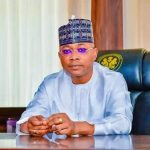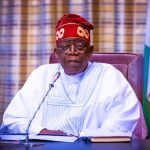Nigeria’s 2025 Budget: Worries Over Debt Servicing and Deficit Amid Economic Challenges.
By Bala Salihu Dawakin kudu
December 19, 2024
Nigerians have expressed significant concerns over the growing debt burden as highlighted in President Bola Ahmed Tinubu’s proposed 2025 budget. While the budget underscores strategic priorities in security, infrastructure, and human capital development, the heavy allocation for debt servicing has raised questions about Nigeria’s long-term fiscal sustainability.
One of the most pressing issues is the allocation of over 15% of the total budget to debt servicing, an amount many argue is unsustainable. Critics fear that this trajectory, if left unchecked, could deepen the nation’s financial woes. While borrowing has become a critical tool for funding development in Nigeria, heavy reliance on it risks pushing the country into a deeper debt trap.
The 2025 budget, like its predecessor, is expected to run at a deficit. The combination of a growing debt burden and a reliance on borrowing to fund the budget has led to widespread concern about Nigeria’s ability to manage its fiscal policies effectively. Experts and citizens alike have called for robust fiscal reforms, emphasizing the urgent need to enhance revenue generation.
The federal government’s revenue generation target of over N30 trillion, backed by an oil price projection of $75 per barrel and a production goal of 2.06 million barrels per day (mbpd), has been met with skepticism. With Nigeria’s current oil production hovering around 1.4mbpd as of October 2024, achieving this ambitious target in the short term remains unlikely, even with improved measures to combat oil theft and vandalism.
To address these fiscal challenges, President Tinubu must prioritize revenue collection efficiency, reduce reliance on borrowing, and implement policies to expand the non-oil revenue base. Improving tax administration and curbing wastage in government spending are essential steps toward achieving fiscal stability.
The proposed budget of N47.9 trillion represents a 74.18% nominal increase compared to 2024. However, in dollar terms, it reflects a contraction of 23.22%, dropping from $36.7 billion in 2024 to $28.18 billion in 2025. This decline in real value could limit the budget’s potential to address Nigeria’s economic challenges.
The government’s strategic focus on job creation, poverty reduction, and social welfare programs is commendable, but the success of these initiatives hinges on efficient project execution, institutional reforms, and minimizing corruption. Rising inflation and currency depreciation further threaten the effectiveness of the budget, especially for essential imports and capital expenditures.
The role of the National Assembly in ensuring timely passage of the budget cannot be overstated. With economic pressures mounting, lawmakers must double their efforts to finalize the budget by January, allowing for its smooth and prompt implementation. Their oversight will be critical in striking a delicate balance between the government’s ambitious development plans and the need for fiscal responsibility.
While the 2025 budget aims to bridge Nigeria’s infrastructure gaps and drive development, its ability to alleviate economic hardship will depend on several factors which include
the enhancing the performance of revenue-generating agencies is crucial to reducing reliance on borrowing, Clear and sustainable debt repayment plans are needed to free up resources for growth-enhancing spending, Tackling rising inflation and stabilizing the exchange rate will help preserve the purchasing power of the budget, and Ensuring efficient implementation of proposed projects with proper oversight will minimize waste and corruption.
Nigeria’s 2025 budget represents a bold fiscal strategy to tackle the nation’s development challenges. However, the heavy burden of debt servicing and reliance on borrowing pose significant risks to its success. By implementing strategic reforms, focusing on revenue generation, and balancing growth initiatives with fiscal responsibility, the Tinubu administration can lay the foundation for a more stable and prosperous future for Nigeria.
As the country navigates these economic challenges, the importance of transparency, accountability, and sound policy execution cannot be overstated. Only with these elements in place can the 2025 budget truly deliver meaningful growth and improve the well-being of the Nigerian people.
By Bala Salihu Dawakin kudu, Email Balasalihudawakinkudu@gmail.com +2348060017934












